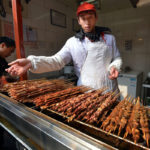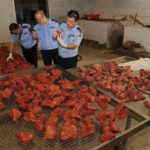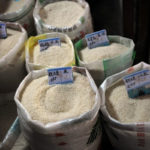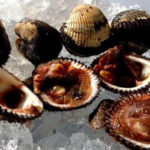Warning! Don’t Eat These Foods Imported From China
1 Corn
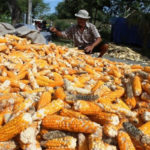
It is not uncommon to find chemical additives in food, but when it comes to additives that are not only chemical, but also toxic, this is the time to avoid a product altogether. This is the case with corn from China.
Some producers add sodium cyclamate to their corn. The purpose of this additive is to preserve the yellow color of the corn for which it is so famous, but also to add sweetness. However, it is important to know that sodium cyclamate is actually toxic, and if consumed in too large quantity, it can damage your liver. This additive is prohibited in the United States, but it remains legal in more than 170 countries around the world.
2 Ginseng
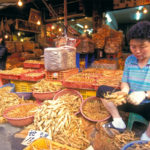
Much of the ginseng that exists in the US comes from China. This root product is one of the most common foods exported from the country. However, that certainly doesn’t mean it’s safe.
Greenpeace tested ginseng from China and found that every single product had some trace of pesticides or other harmful chemicals in varying amounts. Each root didn’t have just one chemical, either. Every root contained multiple chemicals known to be damaging to the human body. Since it might be difficult to find ginseng not imported from China, you may have to cut it out of your diet entirely to stay safe.
3 Table Salt
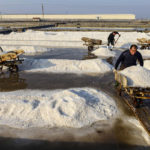
While table salt is a common staple in your home, you’ll want to steer clear of salt imported from China. Although China is one of the top salt manufacturers in the world, the process they use to produce so much of this ingredient renders the salt unsafe for humans.
Chinese salt is commonly filled with metals and other substances that should never enter the human body. Since the large majority of Chinese salt is unsafe for consumption, the Chinese companies are supposed to sell the product as an industrial salt never used for cooking. However, many manufacturers have been passing off this unsafe industrial salt as table salt for years.
4 Rice Noodles
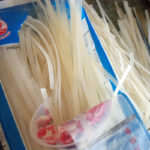
If you’re going to make an Asian-inspired dish, rice noodles imported from China seem like the obvious choice. They add a little authenticity to your meal, and they generally taste quite good.
Unfortunately, the factories that produce rice noodles have been known to use sulfur dioxide. In theory, the chemical helps the noodles appear “fresh”. In practice, however, sulfur dioxide has been linked with cancer. Stay away from this harmful chemical and try to find a source for your noodles that’s a little closer to home.
5 Baby Formula
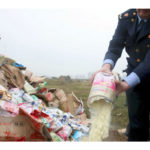
While you might be willing to take a few chances with your own health, you definitely shouldn’t risk the health of your child. Before you buy baby formula, check the label and make sure that the formula isn’t imported from China.
A few years ago, it was discovered that Chinese manufacturers were putting melamine, a product used in plastics, in baby formula. With the melamine, the baby formula appeared to be higher in protein. Consumed in high doses, however, the melamine can cause serious illness in infants.
6 Milk
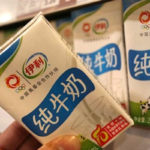
While baby formula contains melamine, imported milk from China contains just as much. If this chemical is consumed, it can cause serious damage to the kidneys.
Hundreds of thousands of people have fallen seriously ill after drinking milk imported from China. From young children to older adults, this substance can wreak havoc on the body. Keep yourself and your family safe by staying far away from imported Chinese milk.
7 Shrimp
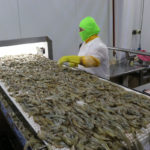
As with other seafood items from China, imported shrimp shouldn’t be at the top of your grocery list. A few years ago, the Institute of Environmental and Human Health food lab at Texas Tech University studied different bags of shrimp bought from different stores around the US. At the conclusion of their study, they reported that every sample was contaminated with known carcinogens.
Each of these substances is available in antibiotics that are illegal in the US. Due to the conditions in China, the shrimp are exposed to all of them. Consequentially, anyone who buys the shrimp then ingests those substances.
8 Tilapia
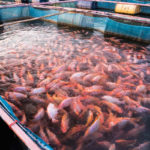
Tilapia may grace your table more often than tilapia, but this fish isn’t any safer if it’s coming from China. Much like tilapia, tilapia sit in tiny tanks teeming with fish. The water in the tanks is full of toxic chemicals and other damaging substances that you never want to put in your body.
If your fish is imported from China, don’t buy it. Before they end up on your dinner plate, the fish have spent their lives soaking up the chemicals around them. They’re perfectly primed to pass those chemicals to you, so shop with care if you’re planning a seafood-themed dinner.
9 Cabbage
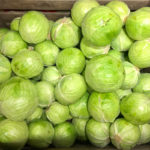
Although crop production somewhat depends on the season, Chinese farmers can’t afford to lose any of their crops, no matter how harsh the weather might be. During the hot summer months, cabbage becomes wilted and inedible. In order to keep their cabbage looking fresh during the hottest months of the year, farmers will spray the crop with a formalin solution.
While the solution keeps the crops looking fresh, it’s incredibly damaging to the body. The formalin is a solution of formaldehyde, and other chemicals used as disinfectants. If ingested, it can cause serious health issues.
10 Canned Peaches
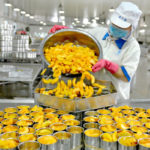
While canned peaches often aren’t the healthiest option, those exported from China are especially damaging. However, it’s not what’s inside the product that makes these Chinese goods dangerous—it’s the can that they come in.
In a study conducted by Australian officials, the researchers discovered that the cans from China were bursting with lead. With twice the amount of legal lead in each can, the harmful substance is bound to infuse into the sugary peaches. The effects of lead poisoning are well-documented, including reduced muscle coordination and damage to your kidneys and nervous system. Avoid lead poisoning by avoiding canned peaches from China.
11 Canned Tuna
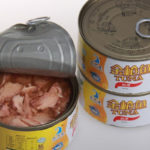
Much like canned peaches, canned tuna from China is known to come with a significant amount of lead hidden in the metal of the can. Believe it or not, that’s not the only reason you should avoid imported canned tuna.
In addition to the dangers of lead poisoning, canned tuna includes many of the harmful substances found in other fish exported from China. The fish farms are filled with pollution and toxic chemicals, and the fish are largely fed on a diet of animal waste. Each of those substances then finds its way into your can, threatening your health each time you buy a new supply.
12 Oil
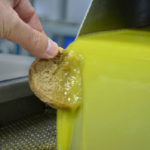
While not all oil from China is tainted, the lack of security precautions and food safety laws make it far too easy for Chinese manufacturers to sell disgusting products. Their actions with oil are especially egregious.
A while back, a massive food company in China decided to take used oil from restaurants, filter it, repackage it, and sell it as new oil. If you’re buying oil from China, you might be purchasing recycled oil that has been “cleaned,” rather than new oil. Since you don’t know where that oil has been, it’s better to be safe and purchase oil not exported from China.
13 Cod
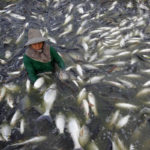
While cod might be an easy choice to throw together a fish-themed dinner, the fish are raised in terrible conditions in China. The cod are thrown into small areas teeming with thousands of fish. Not only are these areas cramped and dirty, but they’re also filled with sewage and garbage.
In short, cod are raised in highly toxic conditions. When you eat the fish, you’re allowing some of that toxicity into your body. Take our advice—stay far away from cod imported from China.
14 Mushrooms
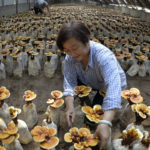
Tainted mushrooms coming out of China are common. Beyond soaking up pesticides like many other types of Chinese produce, the mushrooms are often mislabeled in order to drive up the price. Manufacturers will stamp normal mushrooms with an “organic” label, hoping to gain more profit for their work.
Beyond being filled with harmful chemicals, imported mushrooms are also sprayed with preservatives to appear fresher. Food inspectors have found many problems with mushrooms imported from China over the years. In our opinion, it’s not worth the risk. Buy your mushrooms from a different source and leave the Chinese mushrooms on the shelf.
15 Lamb
It is not uncommon to hear that the Chinese eat strange things, and they are often suspected of not necessarily serving you the meat they claim to have cooked for you. Well, that’s the case with lamb.
If you want to buy lamb, and you see that it comes from China, abstain. In 2013, the police arrested 900 Chinese who were trying to pass off rats as lamb. They found 20,000 pounds of spoiled rat meat. You don’t want to eat that!
16 Tea
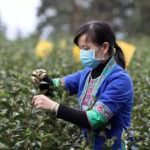
The Chinese consume and produce a very large quantity of tea, so it is normal to think that buying tea from China can do no harm, quite the contrary, but this is not true.
Before you let yourself be tempted by the purchase of a tea from China, remember that it could very strongly contain nearly 30 toxic chemicals. In principle, these toxic teas are not exported out of the country, but it is better not to take any risks.
17 Wine
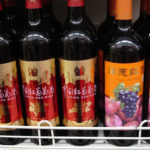
If you know anything about wine, you know that some regions of the world are more famous than others in this field. Needless to say, China is not one of them.
Wines made in China are of course made from grapes, as elsewhere, but they also contain sugar, dyes and artificial flavors.
18 Pork
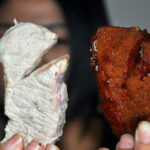
In China, people consume more pork than beef for a very economical reason: pork is almost half the price! However, this is a very bad idea.
To remedy this situation and try to sell more pork, Chinese companies are adding borax-filled additives to their pork to make it look like beef. This is a great way to fool consumers while endangering their health!
19 Chicken
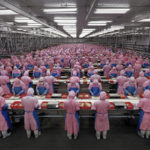
Another food from China that you should avoid at all costs is definitely chicken, and for an excellent reason!
Avian influenza and other diseases related to chickens are common in the Eastern regions of the world. Chickens in China often fail to have the required norms to be eaten, so you could get sick anytime if you buy and eat it.
20 Soy Sauce
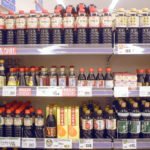
Despite its high sodium content, soy sauce is probably a staple in your fridge. It’s the perfect condiment to toss onto white rice, or it can add flavor to your favorite Asian-inspired dish.
Unfortunately, soy sauce imported from China is known to have 4-Methylimidazole, a cancer-causing chemical. While this chemical isn’t in every soy sauce bottle, it plagues over 25% of all the soy sauce that comes out of China. If you want to keep your favorite condiment in your kitchen without fear, don’t purchase a bottle that comes from China.
21 Eggs
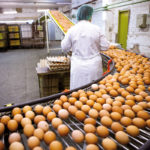
Many of the products we consume every day come from China, and the same goes for eggs. If you look closely, some eggs offered at your grocery store do not come from local farms!
However, you should check the origin of your eggs next time, and avoid buying those that come from China, because factories in that country use calcium carbonate and paraffin in their eggs. So, you risk poisoning if you eat them.
22 Green Peas
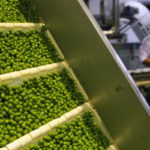
High in fiber and antioxidants, green peas are a healthy choice in veggies. If you buy green peas imported from China, however, you can’t guarantee that you’re actually getting green peas.
Many of the green peas that come out of China were actually conjured up in a lab using a mix of products. Your bag of green peas might be a concoction of soybeans, snow peas, food bleaches, and preservatives. China’s green peas are rarely the genuine article. Not only are they filled with cancer-causing chemicals, but they also keep you from reaping the benefits of real green peas.
23 Apple Juice
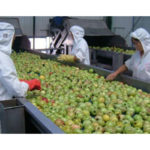
As one of the largest agricultural producers in the world, China’s booming industry uses some questionable methods to keep up with demand. China uses pesticides to grow many of their crops, and those harmful chemicals often make it into your apple juice.
A few popular brands of apple juice sold in the US from China have shown high levels of arsenic. The arsenic likely comes from the liberal use of pesticides in the growing of the apples. If consumed often enough, the chemical element could cause serious health problems.
24 Watermelon
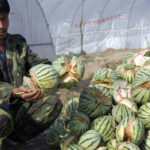
Much like apples, watermelons grown in China are covered in pesticides. The pesticides are meant to help the watermelon grow at rapid rates, therefore increasing China’s exports to other countries.
However, pesticides often find their way inside the fruit. When digging into a China-exported watermelon, you’re likely filling your body with some of those harmful chemicals. It’s better to shop locally and purchase fresh watermelon to avoid getting sick from pesticide-laden fruit.
25 Garlic

If you haven’t sensed a theme yet, here it is: pesticides are a big issue in China’s agriculture. The country doesn’t have any laws to regulate the use of pesticides, so farmers can use them at will to produce as many products as possible in a short amount of time.
The pesticides are particularly harmful to garlic. Garlic is incredibly absorbent and will soak up anything around it, including pesticides. If you’re eating garlic imported from China, your body is getting a huge hit of all those harmful chemicals. For your own health, stay far away from Chinese garlic.
26 Beef
In general, buying any kind of meat from China is not a good idea. Because of the manufacturing process, much of the meat is riddled with diseases that can make you seriously ill.
Chinese meat shops are known for their quick production and less-than-ideal safety standards, so much of the meat comes in contact with unwanted bacteria. In addition, Chinese meat shops have a tendency to mix multiple things together to create something that looks and tastes like beef, but isn’t really beef. If you’re buying beef from China, you might actually end up with a mix of chemicals, paraffin wax, and who knows what else.
27 Rice
Much like rice noodles, buying rice exported from China seems like the obvious move. The Chinese eat rice with nearly every meal, so it has to be good… right? Sadly, that isn’t the case.
Many rice factories in China include a synthetic resin in their rice. Not only are you basically eating plastic, but the chemicals included in the resin are known to cause cancer. If you don’t want to eat plastic rice, try to find a brand that isn’t made in China.
28 Black Pepper
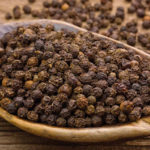
Black pepper has all kinds of health benefits and is a very common ingredient in Asian cuisine. Therefore, you might assume that black pepper coming from China is of the highest quality. Unfortunately, that isn’t always the case.
While some black pepper from China certainly provides the standard of spice you’re looking for, other grocers simply sell hardened mud pellets and call it black pepper. If you’re going to order black pepper from China, make sure you buy your spice from a reputable source to avoid putting mud in your food instead of flavoring.
29 Frozen Fish
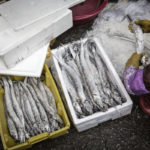
If you can, you should definitely avoid buying any frozen fish imported from China. Like other types of fish, frozen fish is raised in horrible environments that could actually affect your health if you eat too much of these normally delicious sea creatures.
On the fish farms in China, the farmers feed the fish with geese and pig feces that they drop directly into the water. In addition to their disgusting diet, the fish are also full of antibiotics. Not only are they raised in a pretty gross environment, but frozen fish imported from China are also chock-full of chemicals that could hurt you if you consume too much of them.
30 Sweet Potato Noodles
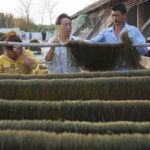
Sweet potato noodles are a staple ingredient in Korean food. Now, they’re often used to replace rice or yellow noodles, as sweet potato noodles are often a healthier option. However, that isn’t the case if you buy your sweet potato noodles from China.
A few years ago, factories in the Guangdong Province in China faced scandal. Authorities found the factories were using industrial dyes and paraffin wax to make sweet potato noodles. If you buy your sweet potato noodles from a Chinese source, you run the risk of ingesting harmful ingredients.
31 Tofu
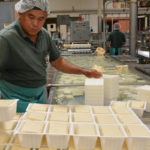
Tofu is yet another product that you shouldn’t eat if it’s imported from China. For those who don’t eat meat, tofu is a good alternative, especially in Asian cooking. But the tofu from China is created using some not-so-healthy methods.
In 2012, food safety inspectors looked at tofu factories in the Hunan Province. There, the inspectors found that the factory workers were using iron sulfate and feces to create tofu. The substances sped up the fermentation process, though they can hardly be considered safe or edible. Next time you buy your tofu, check the label to make sure it’s not from China.
32 Tapioca Pearls
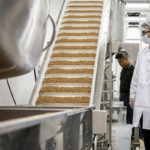
In recent years, boba has become all the rage across the world. Also known as bubble tea, the drink originated in Taiwan and features chewy, starchy blobs known as tapioca pearls. However, you might want to think twice before buying your next bubble tea.
In 2012, researchers in Germany studied tapioca pearls. To their shock, they found polychlorinated biphenyls in the pearls. These man-made chemicals are known cancer-causing agents and can affect all areas of the body, from the reproductive system to the immune system, and many other important bodily functions. If you still want to eat tapioca pearls, try to ensure they’re not imported from China.
33 Ginger
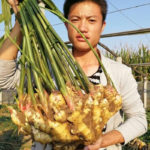
While ginger is a perfect addition to your favorite Asian meals, you should make sure your ginger isn’t sourced from China. In 2013, it was discovered that ginger farmers in Weifang were using aldicarb on their crops. Aldicarb is a pesticide that is classified as “extremely hazardous,” so it is only approved for use on very specific crops, not including ginger.
Not only were the farmers using aldicarb on their ginger crops, but they were also using six times more than the recommended amount. To avoid accidentally putting toxic chemicals in your body, try to find ginger grown outside of China.
34 Frozen Spinach
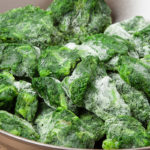
If you’ve ever bought fresh spinach from the store, then you know that you’re practically asking for it to rot in your fridge. Therefore, purchasing frozen spinach is a smart solution, as it allows you to keep the veggie on hand without risking the chance of it going bad.
However, you should avoid purchasing any frozen spinach imported from China. Years ago, health officials in Japan discovered high levels of pesticides in frozen spinach from that country. If you want veggies that are actually good for you, avoid purchasing China-imported spinach.
35 Organic Foods
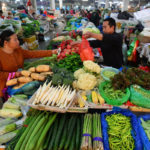
If you truly want organic food, stay far away from anything imported from China, even if it has that signature organic label. True organic food requires very specific standards of farming that promote ecological balance and conservation.
However, China doesn’t have strict guidelines for organic farming. Therefore, Chinese companies can call their products “organic” without actually meeting the guidelines of organic food in the US. You might think you’re eating only organic, but it’s likely the farming processes are anything close to what they should be.
36 Pufferfish
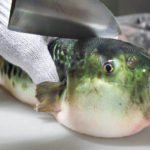
Trying new things and experimenting with unknown foods can be an enjoyable part of your diet. But we recommend you stay far away from pufferfish. While you may not have ever eaten pufferfish, it’s considered a delicacy in China.
However, pufferfish actually contain an incredibly deadly poison. While Chinese farmers can supposedly eliminate the poison by regulating the fish’s diet, it’s not entirely trustworthy. Try eating something else if you want to be adventurous—maybe escargot?
37 Blood Clams
Blood clams are popular in Southeast Asia. Unlike most clams that have clear blood, blood clams have higher hemoglobin, turning them a bright, striking red. While the blood clams look a little gross, there’s actually another reason you should avoid eating them.
Eating a blood clam means you run the risk of contracting hepatitis A. In fact, the clams were outlawed in Shanghai after a particularly severe outbreak. However, fans of this delicacy insist that the taste is amazing, though we don’t believe anything could taste good enough to risk your health.
38 Salted Duck Eggs
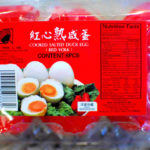
Salted duck eggs are a popular Asian food product. The duck eggs are soaked in brine and packaged in charcoal. If you’re a Chinese food fanatic, then it may be tempting to grab some of these during your next trip to the store.
However, salted duck eggs imported from China may not be entirely safe. Years ago, some of the eggs were found to contain cancer-causing dyes, so it’s probably best to leave them on the shelf.
39 Honey

If you don’t care much about how your honey tastes or whether it’s good for your body, then by all means get your honey from China. However, you should know that it’s probably fake. It’s been discovered that honey imported from China is often artificial, rather than the genuine article.
China may start with a bit of real honey, but it’s then blended with syrup, which dilutes the taste and makes the honey very unhealthy. While it’s difficult to discover which honey is real and which isn’t, it’s best to just avoid honey from China altogether.
40 Frozen Fruit
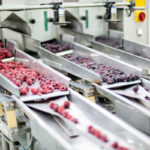
While fruit imported from China may come at a low price, it also might present a risk to your health. Much of the frozen fruit available in the US is imported from China, keeping costs low and allowing consumers to stock up on supposedly healthy options.
However, China doesn’t have the same standards of farming as the US. The fruits are often covered in pesticides or lower in quality than what the US would allow to be sold. Rather than running the risk of purchasing tainted products, just avoid buying fruit imported from China.
41 Catfish
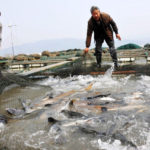
Catfish is an incredibly popular meal in some areas of the country. However, like most fish imported from China, catfish comes into the country with a few health concerns.
Many catfish imported from China have been found to contain levels of chemicals that may impact your health. In addition, the catfish are often polluted with waste. If you’re preparing a catfish dinner, try buying local.
42 Mandarin Oranges

Mandarin oranges are incredibly popular for their smaller size and delicious taste. They’re also packed full of vitamin C, making them a good food to incorporate into a healthy diet. But if you can, avoid purchasing mandarin oranges that have been imported from China.
Like most products, mandarin oranges from China are often grown with the help of harmful and toxic chemicals. Those chemicals then make their way into the oranges, and subsequently into your body. Since China has lower standards for food production, it’s best to hit your local farmer’s market if you want to buy a batch of non-toxic mandarin oranges.
